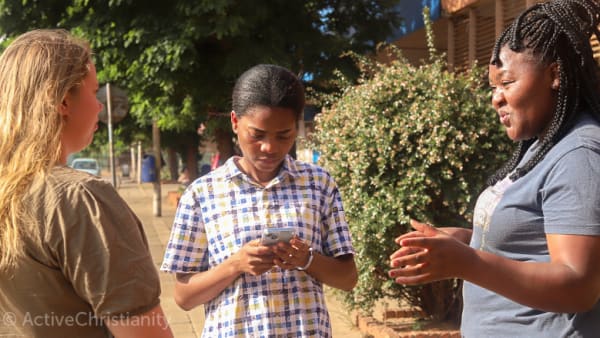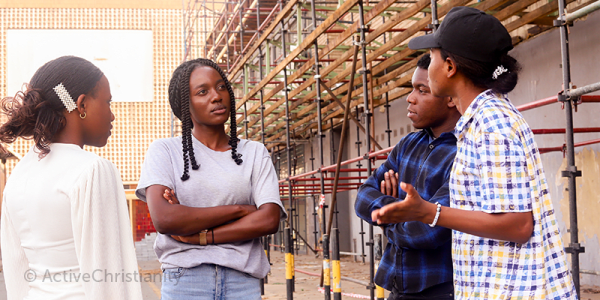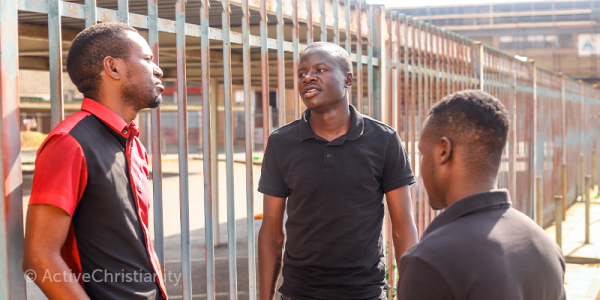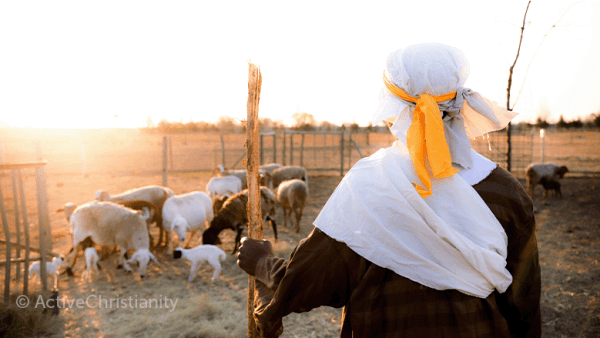Joseph’s example of forgiveness
“When Joseph’s brothers saw that their father was dead, they said, “What if Joseph holds a grudge against us and pays us back for all the wrongs we did to him?” So they sent word to Joseph, saying, “Your father left these instructions before he died: ‘This is what you are to say to Joseph: I ask you to forgive your brothers the sins and the wrongs they committed in treating you so badly.’ Now please forgive the sins of the servants of the God of your father.” When their message came to him, Joseph wept.” Genesis 50:15-17 (NIV).
Joseph’s brothers were afraid that he had forgiven them only because his father had told him to. Usually, if someone would have been treated as badly as Joseph was treated by his brothers, he would be bitter.
Joseph now had the power to punish them, and his brothers were afraid of the punishment. So they came to him, fell down before him, and said, “We are your slaves.” Genesis 50:18 (NIV). But the brothers had no reason to be afraid. Joseph had kept his heart pure throughout everything and could therefore see God’s hand in what was happening. He had forgiven them from the heart, and here come the famous words: “You tried to harm me, but God made it turn out for the best, so that he could save all these people, as he is now doing.” Genesis 50:20 (CEV).
This is one of the most touching stories we can read in the Bible. Joseph understood that to forgive his brothers and make peace with them was extremely important for Jacob’s children and future generations to be able to stay together and be preserved as one people in the future. Just think that this nation of twelve tribes started with 12 brothers making peace with each other!
Overcome evil with good
Nelson Mandela in South Africa acted in the same way. He was put into prison on Robben Island for 27 years. Such an experience would normally make a person bitter. But when he was released from prison, he said: “As I walked out the door toward the gate that would lead to my freedom, I knew if I didn’t leave my bitterness and hatred behind, I’d still be in prison.” He understood that the future of the people in his country could not be built on bitterness but could only be based on forgiveness and making peace with one another.
“Don’t let evil overcome you. Overcome evil by doing good,” Paul writes in Romans 12:21 (NIRV). If you become bitter in the situations of life, you have been overcome by evil. And then you are unable to overcome evil.
“Make every effort to live in peace with everyone and to be holy; without holiness no one will see the Lord. See to it that no one falls short of the grace of God and that no bitter root grows up to cause trouble and defile [pollute] many.” Hebrews 12:14-15 (NIV). This bitter root can only grow in an unclean or impure heart. It spreads to other people, and only causes damage. But a pure heart keeps the bitterness out.
The cross unites
“… God was in Christ, making peace between the world and himself. In Christ, God did not hold the world guilty of its sins. And he gave us this message of peace.” 2 Corinthians 5:19 (NCV). By Jesus’ death, there can be peace between the world and God. This peace can be experienced by every soul who believes in Christ.
“Christ is the reason we are now at peace. He made us Jews and you who are not Jews one people. We were separated by a wall of hate that stood between us, but Christ broke down that wall… Through the cross Christ ended the hate between the two groups.” Ephesians 2:14-16 (ERV).
As human beings we so easily remember all the evil others have done to us. But if we want to keep the peace that Jesus brought, we have to put all of this “on the cross”. This means that our sins should “be crucified”, they should “die” and not control our actions anymore. “The cross” is the only place where hate and bitterness can be killed.
Hate and bitterness drive people away from each other, while the cross unites people. If you speak evil of someone or blame someone, it is the hate in your sinful human nature that is using your tongue as a tool. “We spent our lives doing evil and being jealous. People hated us, and we hated each other.” Titus 3:3 (NCV). Hate just leads to more hate. Just think that we can get out of this evil circle forever! So, it is fitting for us Christians “to speak evil of no one, to be peaceable, gentle, showing all humility to all men.” Titus 3:2. “… even as Christ forgave you, so you also must do.” Colossians 3:13.
We see that forgiveness and making peace with each other are one of the most basic and important things in the Christian teaching and also as a condition for becoming a community builder.




